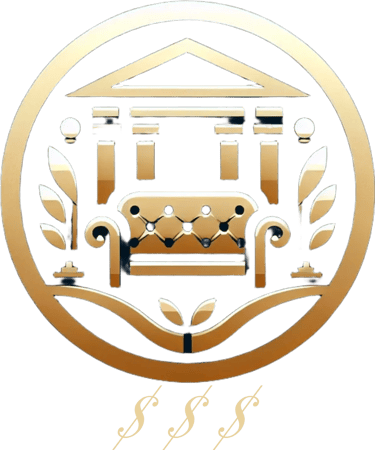
The Ultimate Guide to Making a Great Impression in a Job Interview
4 min read
How to Make a Great Impression in a Job Interview: The Ultimate Step-by-Step Guide
In this article, you'll learn exactly how to prepare and present yourself in a job interview to convey credibility, competence, and empathy — all while significantly increasing your chances of success.
1. First Impressions Start Before the Interview
Many people think the interview begins when they walk into the room or join a video call. That’s a mistake. First impressions are formed long before the actual conversation.
What recruiters notice before the interview even starts:
Your photo and behavior on social media (especially LinkedIn)
Your email address (no nicknames like “cutie_angel1990”)
The clarity and formatting of your résumé (clean, error-free, results-focused)
Your punctuality in responding to messages and scheduling
💡 Pro tip: Use a professional email address with your full name, polish your LinkedIn profile, and double-check all résumé details before sending it out. Everything communicates.
2. Research the Company and Role Thoroughly
Showing up to an interview without understanding the company is like taking an exam without studying. Recruiters expect you to demonstrate genuine interest in the business.
What to research:
The company’s mission, values, and culture
Their products, services, and differentiators
Awards, recent projects, or case studies
The ideal candidate profile for the role
Why this matters:
It helps you tailor your answers strategically
It shows you’re prepared and respectful of the process
It prevents awkward mistakes (like praising a direct competitor)
🎯 Golden tip: Say things like “While researching your company, I noticed how much you value innovation — that really aligns with my work style.”
3. Dress According to the Company Culture
How you dress is one of the first things interviewers will notice — and it should match the company's environment.
Basic rules:
For formal companies (banks, law firms), wear professional or business attire
For startups or creative industries, you can go more casual — but never sloppy
Clothes should be clean, pressed, and fit well
Avoid excessive accessories, heavy makeup, or strong perfume/cologne
✅ The goal is to express professionalism and good judgment, without distracting from your qualifications.
4. Practice Your Answers in Advance
While every interview is different, many questions are recurring. Candidates who prepare for them have a clear advantage.
Common questions to prepare for:
“Tell me about yourself.”
“What are your strengths and weaknesses?”
“Why do you want to work here?”
“Describe a challenging situation you faced at work.”
“Where do you see yourself in five years?”
Recommended technique: The STAR Method
Situation: What was the context?
Task: What was your responsibility?
Action: What did you do?
Result: What positive impact did it have?
🔁 Bonus tip: Record yourself answering and watch it back to fine-tune your tone, posture, and clarity.
5. Be Aware of Your Body Language
Your body speaks volumes. Even if your words are spot-on, poor body language can make you seem insecure, arrogant, or disinterested.
Positive body language tips:
Maintain steady (but not intense) eye contact
Smile naturally
Sit upright with good posture
Use open, relaxed gestures when speaking
Avoid crossing your arms, looking down, or checking your phone
🧠 Confident body language shows emotional intelligence and self-assurance — qualities recruiters value highly.
6. Show Genuine Interest and Listen Actively
An interview isn’t a monologue — it’s a strategic conversation. Listening well is just as important as speaking clearly.
What to do:
Let the interviewer finish before you respond
Ask smart questions (about the team, tools, challenges)
Show enthusiasm without seeming desperate
Don’t interrupt or dominate the conversation
👂 Active listening shows that you're collaborative, respectful, and emotionally intelligent — key hiring traits.
7. Focus on Results, Not Just Tasks
A common mistake is listing responsibilities instead of results. Recruiters want to know what impact you made.
Instead of:
“I was responsible for customer service.”
Say:
“I handled over 50 customer inquiries daily, maintaining a 98% satisfaction rate and helping reduce complaints by 20% within three months.”
✅ Highlight numbers, awards, promotions, or success stories that prove your value.
8. Prepare Questions to Ask at the End
Toward the end of the interview, the recruiter will likely ask:
“Do you have any questions?”
This is your opportunity to show curiosity, engagement, and professionalism.
Smart questions to ask:
“What are the biggest challenges in the first few months?”
“How is employee performance evaluated?”
“Is the team more collaborative or independent?”
“What are the next steps in the hiring process?”
🚫 Avoid leading with questions about salary or benefits — unless the interviewer brings it up.
9. Balance Confidence with Humility
Too much confidence can come across as arrogance. Too much humility might seem like insecurity. The key is balance.
How to strike the right tone:
Acknowledge your strengths without bragging
Be open about areas for growth, and show a learning mindset
Express a genuine desire to grow, contribute, and be part of the team
🙌 The most compelling candidates are confident, reliable, and self-aware — not perfect, but evolving.
10. Follow Up After the Interview
The interview may be over, but your chance to leave a lasting impression isn’t.
What to do next:
Send a thank-you message via email or LinkedIn
“Thank you for the interview today. I really enjoyed learning more about the company and am even more excited about the opportunity. Please let me know if there’s anything else you need.”Be respectful when following up on the process
If you’re not selected, ask for feedback — it shows maturity and a growth mindset
Conclusion:
First Impressions Come from Preparation + Authenticity
Making a great impression in a job interview isn’t about luck or natural talent — it’s about:
Knowing yourself and the company
Clear, confident communication
Real interest and contribution mindset
Confidence that comes from being prepared
A job interview is one of the most important moments in your professional life — and with the right strategy, you can master it.



